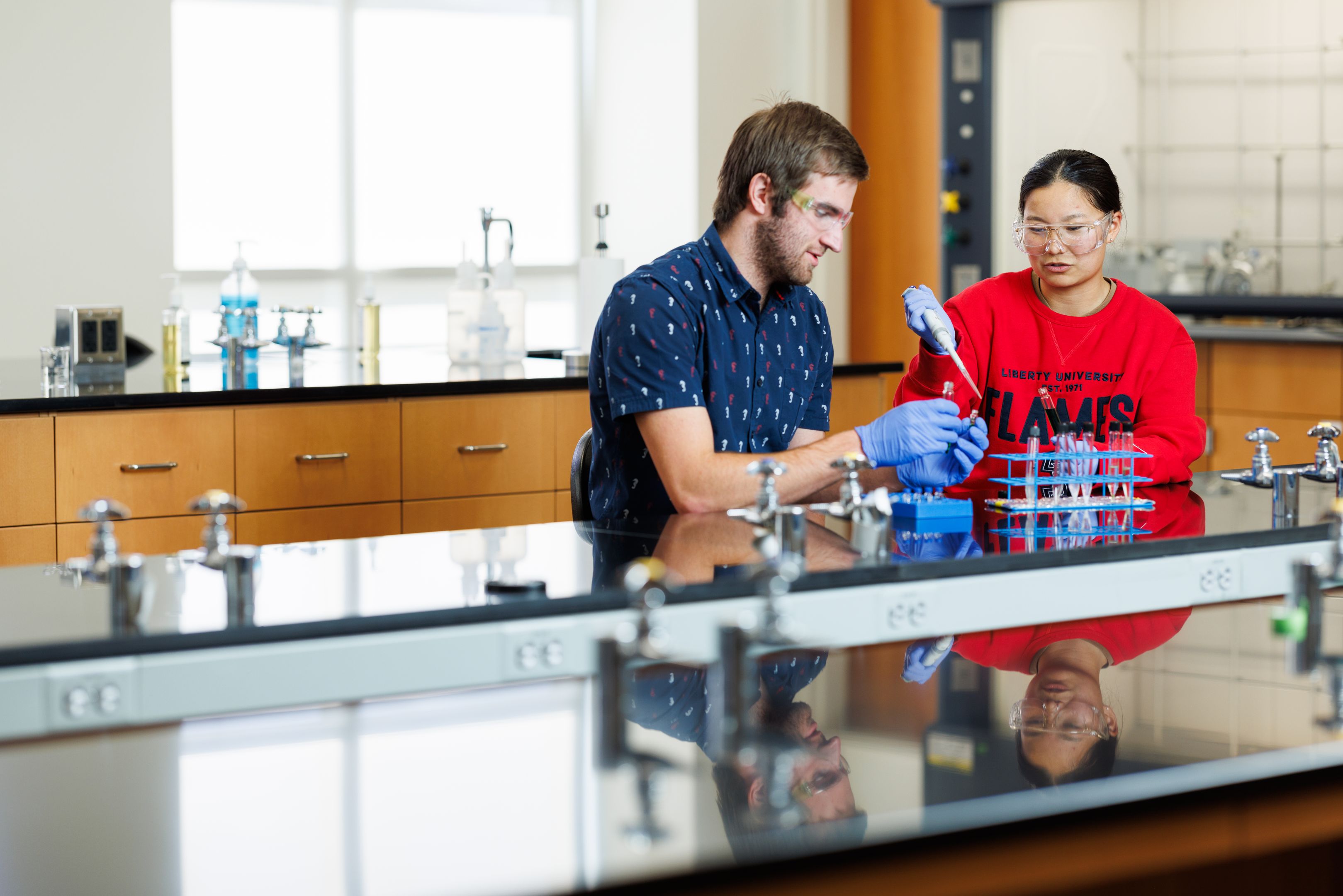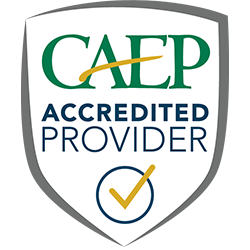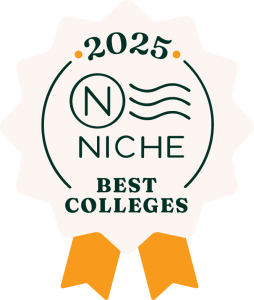
Bachelor of Education in Chemistry
Learn to Teach Students Chemistry by Earning a Bachelor of Education Degree
If you are someone who loves chemistry and wants to make a positive impact on the next generation, then our chemistry education program may be for you! Liberty University’s Bachelor of Education (B.Ed.) in Chemistry Education 6-12 can help you prepare to pursue your teaching license so you can use chemistry to teach reason and logic to adolescents.
Chemistry is an important subject for young people. You may inspire some students to go on to careers in medicine and science. Even your students who take a completely different path can benefit from the objective reasoning taught in chemistry. Partner with us to earn your chemistry education degree and work toward your teaching license.
Upon successful completion of Liberty University’s Virginia state-approved Bachelor of Education program, you may apply for your teaching license in another state through reciprocity, which may or may not result in additional requirements based on your state’s Department of Education regulations.
Credit Hours
View CoursesNext start date: Aug 18, 2025

CAEP Accredited
Highlights
Highlights of Our Bachelor of Education Degree
Prepare for Your Teaching License While You Study Chemistry
This B.Ed. program blends your passion for chemistry with the practical coursework required for Virginia licensure. You can graduate with the education to pursue chemistry teaching licensure in a 6-12 setting.
Learn from Licensed Educators with Real Classroom Experience
Your professors aren’t just scholars – they’re also experienced teachers. Every faculty member overseeing licensure courses holds a current teaching license and brings firsthand K-12 classroom experience into the university setting.
Build Skills with Hands-On Teaching Experience
Before graduation, you’ll complete 90 practicum hours and spend at least 1 full semester student teaching. These real-world placements give you the chance to apply your skills and grow with the support of experienced mentor teachers.
Benefit from CAEP-Accredited Training
Liberty’s School of Education meets rigorous national standards through its Council for the Accreditation of Educator Preparation (CAEP) accreditation. This distinction reflects a strong commitment to preparing future educators with the knowledge and ethical foundations to support diverse learners.
Potential Eligibility for the Federal TEACH Grant
As a student in one of Liberty’s licensure-track programs, you may qualify for the Federal TEACH Grant – a federal program designed to support aspiring teachers who commit to working in high-need areas. This opportunity can help reduce your financial burden while you prepare for your future career.
Career Potential
What Can You Do with This B.Ed. in Chemistry?
Liberty University’s Bachelor of Education degree with a specialization in Chemistry can help prepare you to pursue the following occupations:
- Chemistry education teacher for Christian schools
- College/university academic advisor
- High school chemistry teacher
- Middle school chemistry teacher
- Private school teacher


#4 Best College Campus in America
At Liberty, you’ll find an affordable, high-quality education designed to help equip students like you for the real world. Our commitment to excellence has earned us recognition as the #4 Best College Campus in America by Niche.com.
Earning your degree from a nonprofit university with state-of-the-art resources like ours can help set you apart from your peers.
Courses
What Will You Study in Our B.Ed. in Chemistry?
Your Bachelor of Education degree will cover topics that can help you in many fields, including written and oral communication, mathematics, psychology, and Christian principles. Your chemistry education courses cover teaching, hands-on preparation, and fundamentals in chemistry.
Throughout your education degree, you can learn about teaching different types of students, curriculum development, instructional design, and content measurement and evaluation. With your chemistry focus, you will study a variety of topics, including:
- Analytical chemistry
- Biochemistry
- General chemistry
- Organic chemistry
- Physical chemistry
Additional Degree Information
Featured Chemistry B.Ed. Courses
BCHM 451 – Biochemistry I
CHEM 301 – Organic Chemistry I
CHEM 461 – Physical Chemistry I
EDUC 360 – Foundations of Education
Degree Information
- This program falls under the School of Education
- View the Degree Completion Plan
- Check out our course catalog
- Transfer in up to 75% of the degree total
BENEFITS
Why Choose Liberty for This Chemistry Education Degree?
Experience-Powered Preparation
You’ll do more than just study theories – you’ll step into real classrooms and learn by doing. Liberty’s practicum and student teaching opportunities give you the chance to build practical teaching skills under the guidance of seasoned educators. From classroom management to lesson planning, these hands-on experiences help you build confidence and competence.
Licensure Support That Streamlines
Earning your teaching license is a major milestone – and Liberty is here to help you on your journey. The School of Education provides clear guidance and individualized support along the way. From your first education course to your final certification steps, we’re ready to walk alongside you.
A Community Committed to Educational Impact
You’re not just training to teach – you’re preparing to make a difference in students’ lives. At Liberty, you’ll join a community that values both academic excellence and heartfelt compassion. As one of the largest producers of educators in Virginia, Liberty connects you with a network of professionals who are passionate about serving schools and students. You’ll be encouraged to lead with integrity, care deeply, and teach with purpose.
A Christian Perspective That Shapes Your Teaching
Your faith can be a powerful influence in the way you teach, guide, and support your future students. Liberty’s School of Education integrates a Christian worldview into every course, encouraging you to approach your classroom with character and compassion. You’ll be challenged to think ethically about the responsibilities of an educator. This values-driven foundation can help you serve students from all backgrounds with respect, empathy, and conviction.
Admissions
How Do You Become a B.Ed. in Chemistry Student?
Every application is reviewed by the admission committee on a case-by-case basis, meaning there are no set minimums for acceptance. However, all applicants must submit the following documents* for admission:
- Admission application
- Official high school transcripts
- Official college transcripts (if applicable)
- Admission essay
Results from the CLT, SAT, or ACT are not required for admission, but may be used in consideration for merit-based aid.
*Note that additional documentation may be requested by the admission committee after your application has been received.

Have Questions?
We’ll make sure you have the information you need to take your next step.